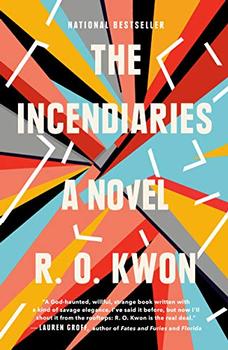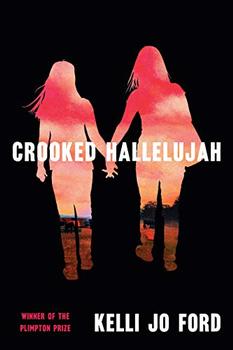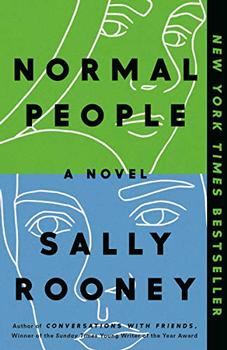Summary | Excerpt | Reviews | Beyond the book | Read-Alikes | Genres & Themes | Author Bio

A Novel
by R O. KwonPhoebe Lin, the glamorous but tortured heroine of The Incendiaries, is convinced she has no room for religion. Phoebe's father might have founded a Korean church in L.A. but she was mostly brought up by her single mother, whose emphasis on structure for her young daughter revolved primarily around extensive training on the piano.
At Edwards, an exclusive college in the Northeast, the gorgeous Phoebe draws the attention of fellow student Will Kendall, and they soon fall in love. Will and Phoebe are a study in contrasts: Phoebe is quite the party animal, while nerdy Will is a scholarship student who waits tables, steals apples from the dining hall to squelch hunger pangs, and sends money back to his mother in California who bags groceries for a living. Their romance is mostly a case of poor-boy-meets-rich-girl.
There is one other thing that unites the young lovers: a choice to shed religion from their lives. Will, in fact, has transferred from a Bible college, eager to leave that past behind. For her part, Phoebe might believe she has no need for religion, but she is actually the perfect candidate for the brand of succor it provides. Wracked with guilt over a traumatic incident in her childhood, Phoebe is intrigued when an old family friend, John Leal, invites her to a special retreat. John, who has supposedly endured trial by fire in North Korea and found deliverance through religion, dangles a golden carrot, telling Phoebe, "Call me when you're tired of wasting this life."
Through chapters that alternately focus on Phoebe, Will and John, author R.O. Kwon brilliantly illustrates how John Leal's tantalizing promise at first only singes Phoebe at the edges, but soon that fire burns bright in her and she is completely drawn into Jejah, the extremist cult (see Beyond the Book) he leads.
There is little mystery in The Incendiaries, as we learn of the aftermath early on. Buildings fell. People died. The slow burn instead focuses on just how systematically a life can spiral out of control and incinerate everyone in its wake. The frustration for Will is that he partly understands Phoebe's new obsession: "People with no experience of God tend to think that leaving the faith would be a liberation, a flight from guilt, rules, but what I couldn't forget was the joy I'd known, loving him...I was tantalized with what John Leal said was possible; I wished him to be right," Will says.
Kwon expertly orchestrates the plot to its arresting (although not surprising) conclusion, though at times her sentences are too clipped, the background too sparse, for the reader to really engage with the story. "I walked on blackened palm fronds, a tangled pile: I imagined lifting up the lush jumble of leaves and finding it was Phoebe's hair, disheveled with morning." Such writing sounds lovely, but can leave the reader trying to piece together the elephant just by touching the ears and tail. You long for more meat on those bare bones. Many chapters start with a sentence narrated in third-person, only to abruptly switch over to first-person again. Such a stylistic choice feels gimmicky and keeps the reader at a slight remove.
It is true that Phoebe is singled out as prey by John Leal and gets ensnared into the cult, finding something attractive and meaningful in what he offers. But I found the novel's fundamental premise — that the hole in Phoebe's heart can only be filled by partying or religion, a tad simplistic. This character swings wildly from one extreme to another; there are no shades of gray here. At its best though, The Incendiaries teases out the subtle differences between religion and faith. It is the skeptics, the borderline believers like Phoebe, Kwon argues, who are the most dangerous, who are willing to do anything to prove their fealty to a cause larger than themselves. "I hadn't known it, but I longed for discipline," Phoebe explains, "It was part of the life I'd lost with the piano: a schedule, rigid expectations. With the six-plus hours I practiced each night, I'd had rules to bind me in place. They'd held me up." Unfortunately for Phoebe — and by extension, Will — extreme religion's version of binding discipline is much too toxic a cocktail for the inexperienced to handle.
![]() This review was originally published in The BookBrowse Review in October 2018, and has been updated for the
September 2019 edition.
Click here to go to this issue.
This review was originally published in The BookBrowse Review in October 2018, and has been updated for the
September 2019 edition.
Click here to go to this issue.

If you liked The Incendiaries, try these:

by Kelli Jo Ford
Published 2021
It's 1974 in the Cherokee Nation of Oklahoma and fifteen-year-old Justine grows up in a family of tough, complicated, and loyal women presided over by her mother, Lula, and Granny.

by Sally Rooney
Published 2020
A wondrous and wise coming-of-age love story from the celebrated author of Conversations with Friends
Your guide toexceptional books
BookBrowse seeks out and recommends the best in contemporary fiction and nonfiction—books that not only engage and entertain but also deepen our understanding of ourselves and the world around us.